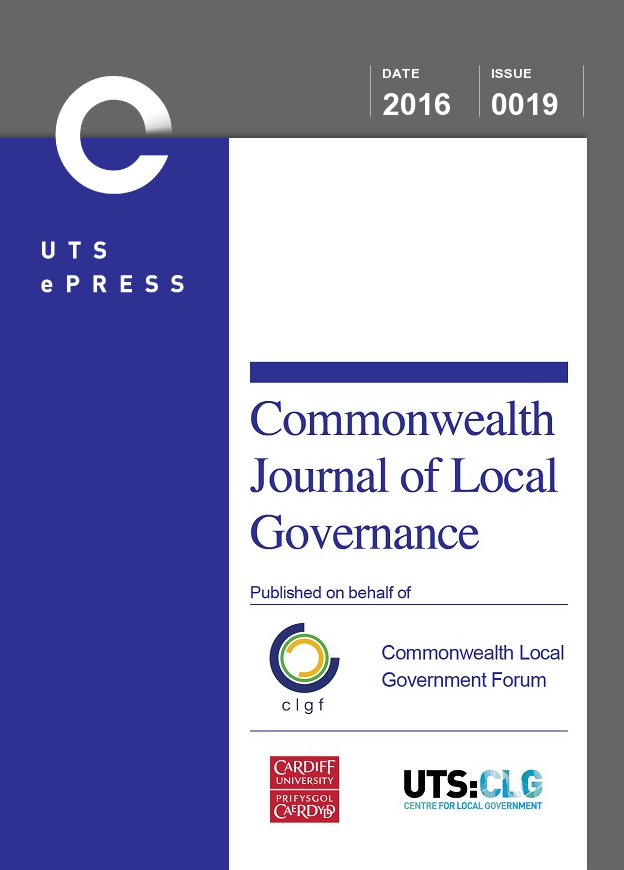Successful, safe and sustainable cities: towards a New Urban Agenda
Main Article Content
Abstract
There is a growing interest among national governments and international agencies in the contribution of urban centres to sustainable development. The paper outlines the new global agendas to guide this: the Sustainable Development Goals, the Paris Agreement and the New Urban Agenda. It then sets out the key challenges and opportunities facing urban governments across the Commonwealth in implementing these agendas and achieving inclusive, safe, resilient and sustainable cities. This is hampered by significant infrastructure deficits (especially in provision for water and sanitation) and a lack of funding. After outlining the commitments agreed by national governments in these global agendas, the paper discusses the vital role in meeting these of city leadership, financing and investment, urban planning and local economic development. Whilst it is good to see recognition of the importance of cities to national economies, economic success in any city does not automatically contribute to a healthier city, a more inclusive city or a sustainable city. This needs capable and accountable urban governments working closely with local civil society, and the redirection of public funds and development assistance to support them.
Article Details
Issue
Section
Authors who submit articles to this journal from 31st March 2014 for publication, agree to the following terms:
a) Authors retain copyright and grant the journal right of first publication with the work simultaneously licensed under a Creative Commons Attribution License that allows others to share and adapt the work with an acknowledgement of the work's authorship and initial publication in this journal.
b) Authors are able to enter into separate, additional contractual arrangements for the non-exclusive distribution of the journal's published version of the work (e.g., post it to an institutional repository or publish it in a book), with an acknowledgement of its initial publication in this journal.
c) Authors are permitted and encouraged to post their work online (e.g., in institutional repositories or on their website) prior to and during the submission process, as it can lead to productive exchanges, as well as earlier and greater citation of published work (See The Open Access Citation Advantage Service). Where authors include such a work in an institutional repository or on their website (ie. a copy of a work which has been published in a UTS ePRESS journal, or a pre-print or post-print version of that work), we request that they include a statement that acknowledges the UTS ePRESS publication including the name of the journal, the volume number and a web-link to the journal item.
d) Authors should be aware that the Creative Commons Attribution (CC-BY) License permits readers to share (copy and redistribute the work in any medium or format) and adapt (remix, transform, and build upon the work) for any purpose, even commercially, provided they also give appropriate credit to the work, provide a link to the license, and indicate if changes were made. They may do these things in any reasonable manner, but not in any way that suggests you or your publisher endorses their use.
For Issue 13/14, and all issues before, the following copyright applied:
Authors submitting a paper to UTS ePRESS publications agree to assign a limited license to UTS ePRESS if and when the manuscript is accepted for publication. This license allows UTS ePRESS to publish a manuscript in a given issue. Articles published by UTS ePRESS are protected by copyright which is retained by the authors who assert their moral rights. Authors control translation and reproduction rights to their works published by UTS ePRESS. UTS ePRESS publications are copyright and all rights are reserved worldwide. Downloads of specific portions of them are permitted for personal use only, not for commercial use or resale. Permissions to reprint or use any materials should be directed to UTS ePRESS via the journal's main editor, Alison Brown, journal@clgf.org.uk
